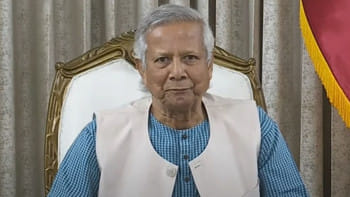Bangladesh graft hotline gets 75,000 calls in first week

Bangladesh's new anti-corruption hotline (106) has been overwhelmed with tens of thousands of calls about acts of graft in its first week, an official said Thursday.
Hotline number 106 was launched last Thursday by state authorities in an effort to crack down on graft in Bangladesh, which has been listed by a global watchdog as one of the world's most corrupt nations.
"Since July 27 around 75,000 people called our hotline," Anti-Corruption Commission (ACC) spokesman Pranab Kumar Bhattacharya told AFP.
The hotline is manned by just five government employees, with a substantial number of calls being forwarded to a voicemail messaging system.
Bhattacharya said most callers who got through had complaints that were beyond the agency's jurisdiction, including personal family disputes and dowry demands.
The commission is empowered to investigate bribes in government offices and agencies, misappropriation of state assets or money, embezzlement of state funds, amassing of wealth through illegal means, money laundering and bank fraud.
More than 200 relevant complaints were forwarded to the ACC to investigate.
Local English daily The New Age said most complaints were against land record offices, followed by utility services, state-run hospitals, government-run schools and railway and road transport authorities.
"Most complaints are related to land," Rajib Ahsan, an official at the ACC's hotline cell, told AFP.
Some women had complained of dowry demands from their husbands, he said.
Last year Bangladesh was ranked as the 13th most corrupt nation in the world, according to the graft perception index prepared annually by Berlin-based Transparency International.
Last week Bangladesh's Finance Minister A.M.A. Muhith, while inaugurating the hotline, acknowledged the depth of the problem and said in the past corruption was an act of shame but it had now taken root in the country of 160 million people.
"We are all overwhelmed by corruption. Those in power spread corruption," he said. "It could not continue if everyone were not involved. We are all indirectly involved."


 For all latest news, follow The Daily Star's Google News channel.
For all latest news, follow The Daily Star's Google News channel. 



Comments